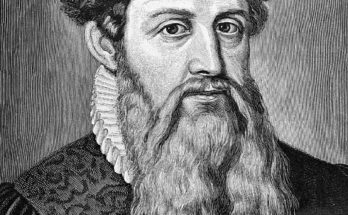Quick Facts
| Net Worth | Not Known |
| Salary | Not Known |
| Height | Not Known |
| Date of Birth | Not Known |
| Profession | History |
The legend of the Illuminati has been passed down from one generation down to another for hundreds of years and still maintains its stronghold. It has been at the top of every list of conspiracy theories and it is perhaps the most popular and most persistent cult of all time. Historical events like plotting of the French Revolution and the assassination of John F. Kennedy have been traced to the Illuminati. They have also inspired several popular novels and films and this leaves many with the conviction that the group exists to date.
In this article, we discuss seven things you didn’t know about Illuminati and its members, keep reading to be enlightened.
7 Things You Didn’t Know About Illuminati and Its Members
1. Illuminati was founded by a German professor
The order of the Illuminati was not always what we now assume as ”the big bad cult you dare not think or ask questions about else demons in red would come for your soul”. It was actually started in the mind of an 18th-century avid thinker who did not like the way religious prejudices were being used to govern the society. This man believed the modern society deserved better than to be run by a bunch of rigid beliefs that suppressed freedom of thought and he was no other than Professor Adam Weishaupt, a native of Ingolstadt city, Bavaria (now part of Germany).
2. The order of the Illuminati’s main motive
During the 18th century, Europe was largely dominated by the Catholic Church and since Bavaria was part of the continent, its people were highly conservative Christians too. The implication of this was that anybody with a contrary opinion on how things should be done were not free to share their views. Weishaupt who grew up as an intellectual, having read lots of books by various enlightenment philosophers, sought to find an alternative form of “illumination”, different ideas that could help him change the status quo and this was made the core aim of the order of the Illuminati.
3. The era of the Freemasons vs Illuminati
Freemasonry, a secret fraternal organization that offered alternatives to freethinkers, was already established at this time and they were spreading their wings all across Europe during the period Weishaupt was on his quest for illumination. Tempted by their attractive offers, he considered joining them but he was disappointed by some of the Freemason’s ideas, hence, he decided to found his own secret society. He also had to gain further knowledge by reading esoteric books like ”Mysteries of the Seven Sages of Memphis and the Kabbala” to enable him to execute his plan to establish the Illuminati.
4. The core beliefs of Weishaupt were imbibed by the Illuminati
In Weishaupt’s words, he was not against religion but rather the imposition of it and so he aimed to create a state of liberty and moral equality, unencumbered by the obstacles of riches, rank, and subordination. He planned to achieve this with his philosophy which addresses issues like freedom from religious biases, fostering of social virtues and establishing a feasible prospect of universal happiness. These beliefs later became the core values of the order of the Illuminati.
5. The first Illuminati members where Weishaupt’s students
Weishaupt was able to convince four of his students on his thinking, and on the night of May 1, 1776, the order of the Illuminati was founded by five men, in a forest close to Ingolstadt. The rules by which the order would be governed, as well as the requirements for future admissions were also established that night. The most important requirements set for prospective new members were reputable social and family background, wealth and consent of the old members.
6. The group gained a lot of fame a few years after it was established
As the years grew, so did the members of Illuminati, both in numbers and diversity and by the year 1782, they had already reached about 600 members. These included some of the most reputable intellectuals, politicians and noblemen of Bavaria like Johann Wolfgang von Goethe and Baron Adolph von Knigge. By the end of 1784, the numbers had increased exponentially to between 2000 and 3000, some of which were members of the Freemasons. It is also known that as the group expanded, members were given secret classic names and the hierarchy of membership became more complex, having 13 degrees of initiation.
7. The order of the Illuminati was disbanded
Gradually, pressure increased from within the order of the Illuminati due to conflict about its procedures and aims. They were eventually betrayed by a former member, Joseph Utzschneider who wrote a letter to the authorities of Bavaria, revealing the identities of the members of the secret group and also a mix of truth and lies of what the society had been up to. This led to a series of edicts being issued between 1785-1787 by the Duke-Elector Charles Theodore for the arrest of members, the prohibition of the order and the penalty of death for anyone who refused to comply. The order was disbanded and Weishaupt was banished to Gotha, Saxony, where he lived the rest of his life and taught Philosophy.
Also Read: Top 10 Richest People in the world with full biography and details.




